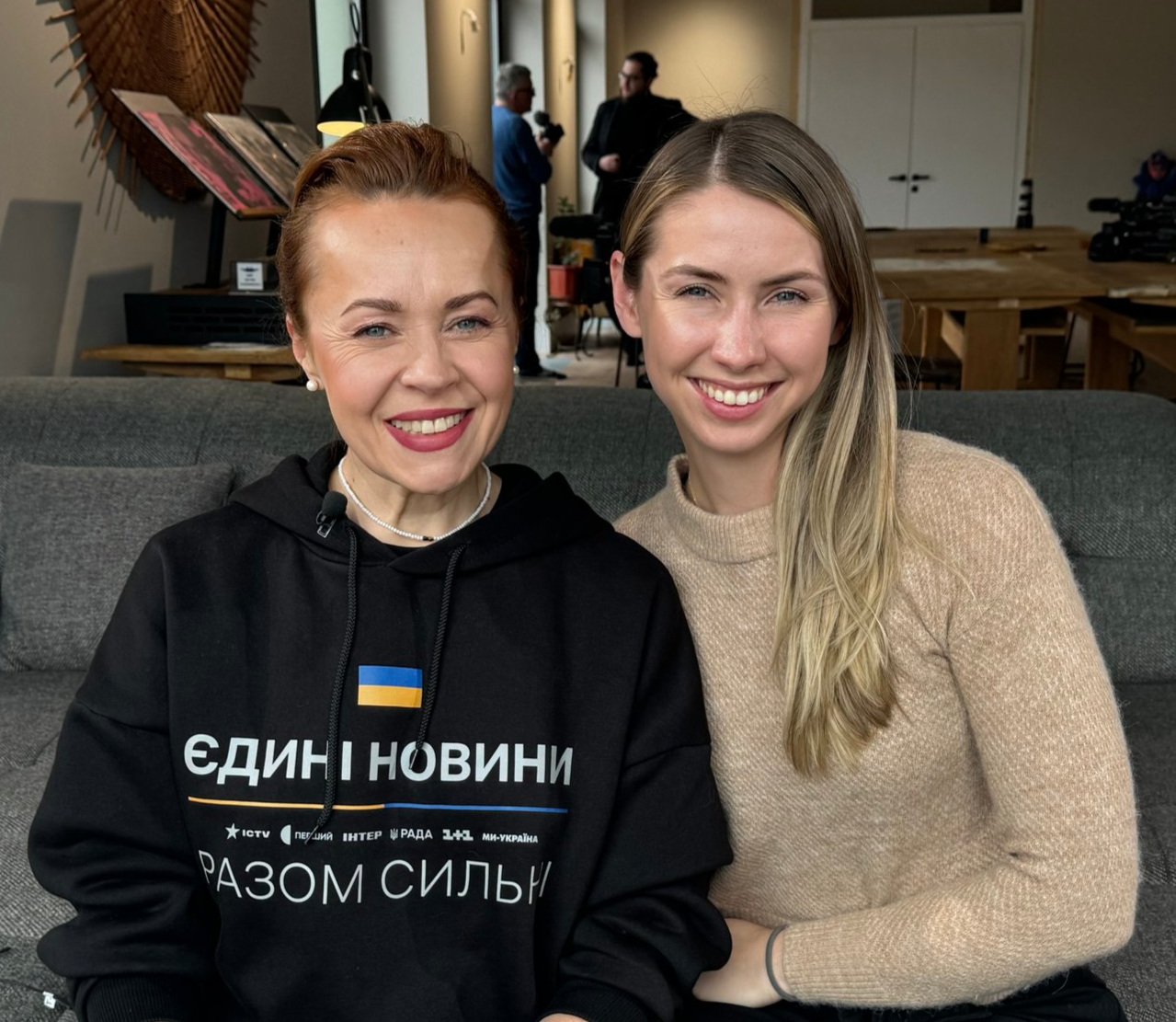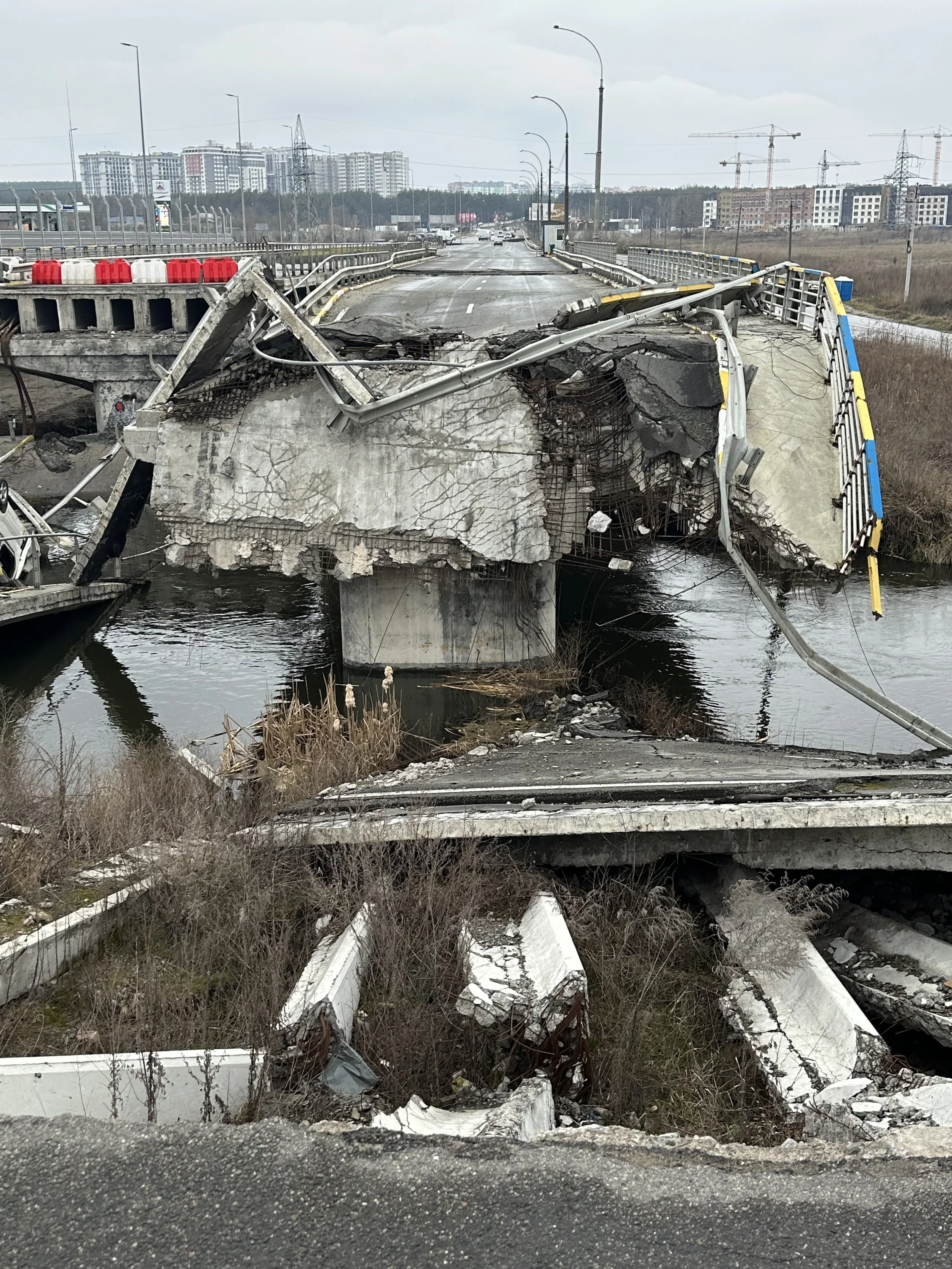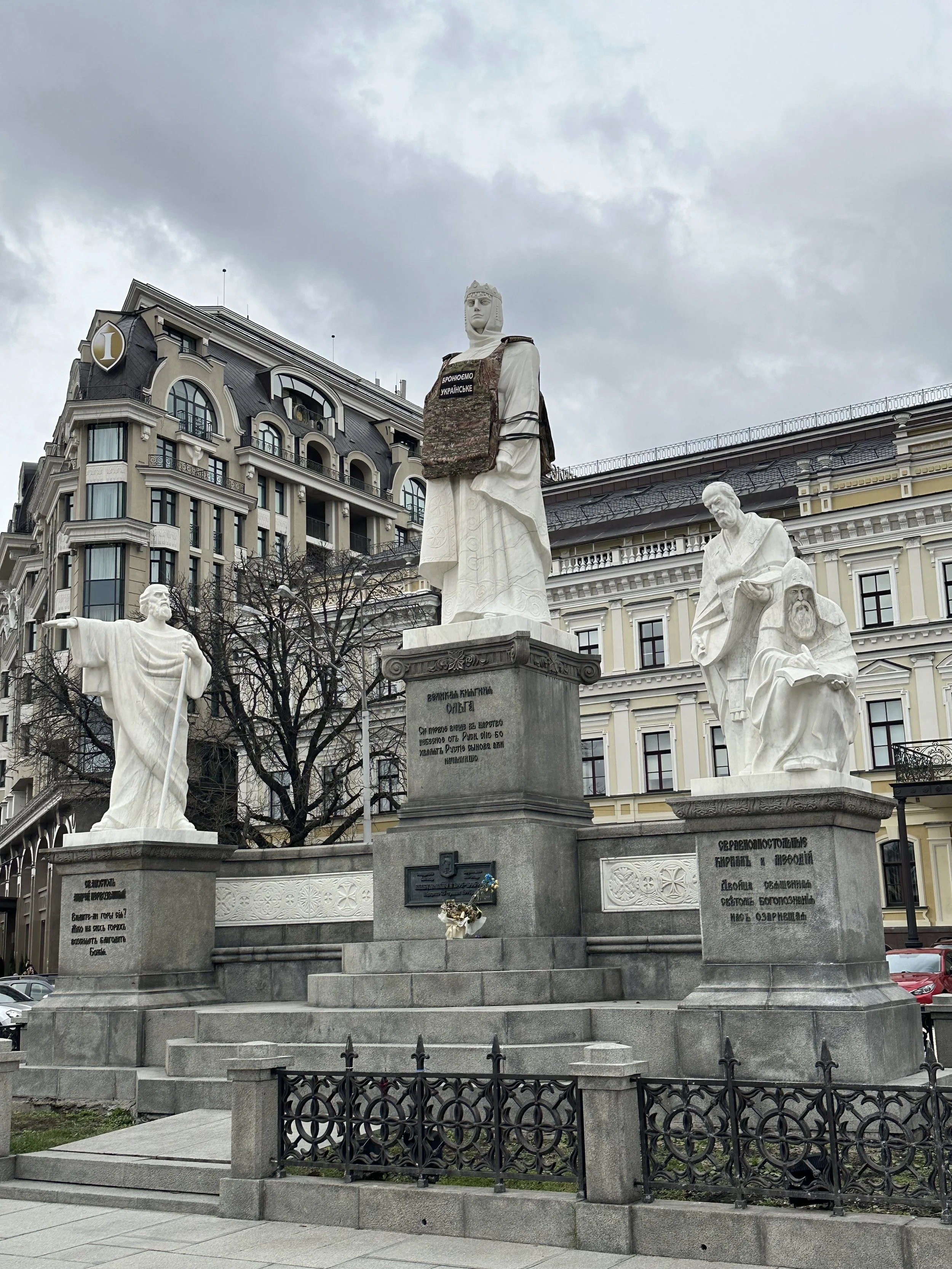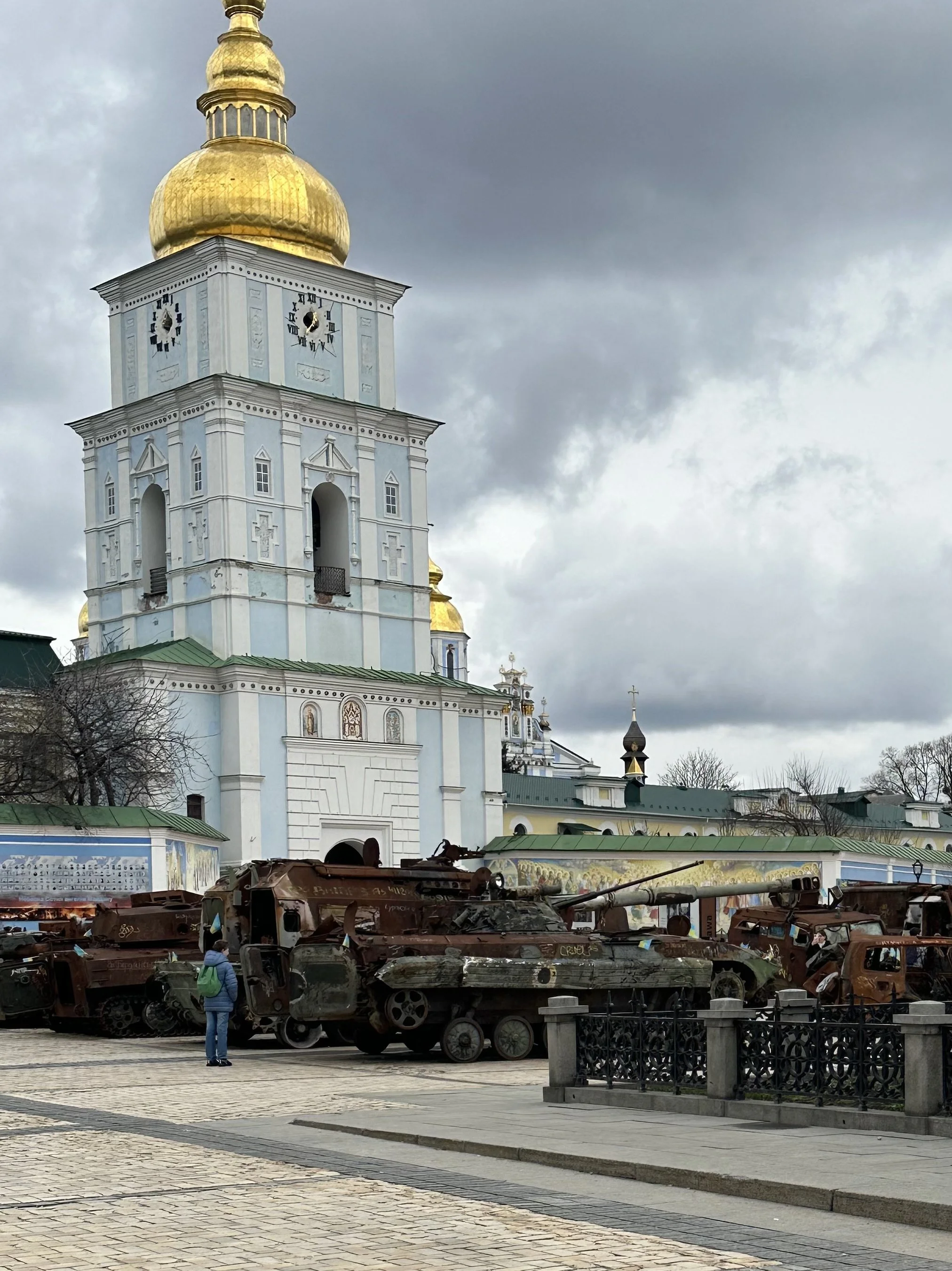HUT Leaders in Ukraine: A Personal Perspective on the Impact of War
HUT Executive Director Elise Wilson (right) with journalist Tatyana Goncharova.
In late March, Executive Director Elise Wilson and Board Member John Tedstrom traveled to Ukraine to meet with HUT program partners, government officials, military contacts and Board/Advisory Board members. Elise, John and Oksana Gryshchenko, HUT’s Ukraine Country Director, visited several medical facilities including Forest Glade, a military medical center dedicated to mental health. Our trips to Ukraine provide an opportunity to advance current and future HUT programming, understand the situation on the ground, learn from other NGOs working in Ukraine and expand our network.
A Personal Perspective on the Impact of War, from Elise Wilson
On the night of our arrival in Kyiv, Russia launched its most extensive missile assault in weeks, injuring at least 17 people and wreaking havoc on schools, residential areas, and industrial sites. This came after a 44-day hiatus in such attacks on the Ukrainian capital. Along with many others, we spent several hours most nights in the hotel bunker.
During the day, Kyiv exudes the liveliness of any vibrant European city—until the abrupt interruption of the air alert app begins echoing through the streets. In a poignant display of resilience, when the air alert pierces the midday activity of Kyiv, a surprising number choose not to react or seek shelter. They simply keep moving. After enduring two years of war and multiple air alerts daily, many have grown accustomed to drowning out the unnerving sound or simply silencing it on their phones.
For people who haven’t experienced life in a war zone, news coverage and our own imaginations often lead us to believe that time stands still amidst conflict. We envision a reality where every aspect of life revolves solely around the war. While this holds true to some extent – war consumes a considerable portion of mental bandwidth – life continues amidst the turmoil. It's crucial to recognize the stark contrast between the daily experiences of individuals on the frontlines or in occupied areas compared to those in Kyiv. In Kyiv, life persists. People commute to work, friends gather at cafes, children frolic in playgrounds, and families ponder the age-old question of what to cook for dinner.
Living under constant stress is draining, a fact evident in the weary expressions of nearly everyone we encountered. Planning for the future becomes a challenge, with many unable to look beyond the immediate week.The toll of war is already leaving its mark, though the full mental health impact of years of war and missile assaults may only surface once the conflict ends. In the meantime, Ukraine needs help to meet the increased need for trauma-informed mental health care – more trained therapists, effective therapies and interventions for high-risk populations. This knowledge motivates all of our work.





